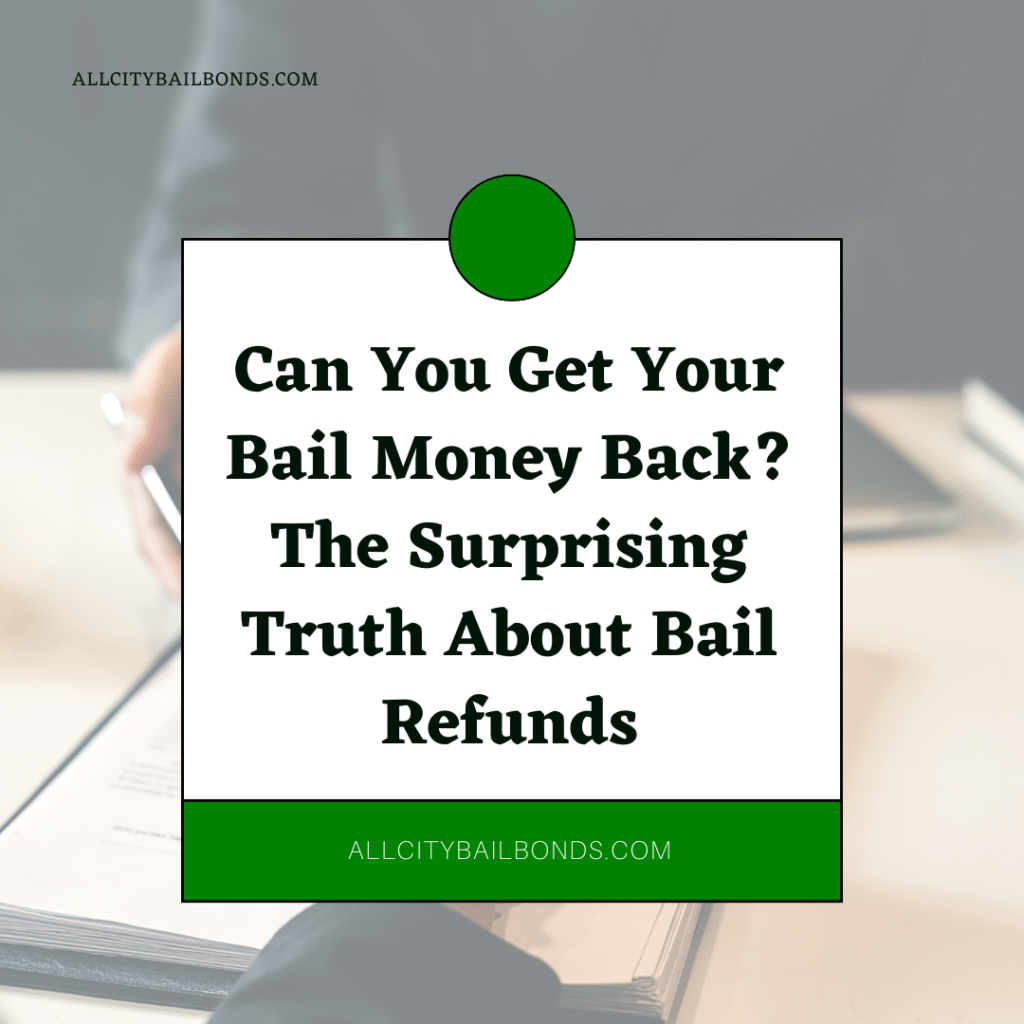Navigating the legal system can be complex, especially when facing criminal charges. One common aspect is bail, a financial guarantee that ensures your appearance in court. Many individuals wonder what happens to their bail money if they are found innocent. This article will delve into the intricacies of bail and clarify the process of getting your bail money back if innocent. We’ll explore the factors influencing bail refunds and emphasize the crucial role legal representation plays in securing a favorable outcome.
Bail Explained
Bail is essentially a financial pledge made to the court, guaranteeing that you will attend all scheduled hearings and court dates related to your case. When you are arrested, a judge determines your bail amount based on various factors, including the severity of the charges, your criminal history, and flight risk. The bail amount can range from a few hundred dollars to tens of thousands, depending on the circumstances.
There are two primary ways to post bail: by paying it directly or through a bail bondsman. If you pay the bail directly, the court holds onto the money until your case is resolved. If you use a bail bondsman, they will pay the bail amount on your behalf for a fee, typically 10% of the total bail. The bondsman then requires collateral from you to ensure that you appear in court as scheduled.
Innocent Verdict and Bail Return
If you are found innocent at trial or if the charges against you are dismissed, you are entitled to have your bail money back if you are innocent. The court will return the full amount of bail that was posted on your behalf. This process typically occurs after all legal proceedings are finalized and the case is closed.
It’s important to note that even if you are found not guilty, there may be some instances where a portion of your bail money might be withheld. For example, if you violated any court orders or failed to appear for scheduled hearings during the course of your case, the court could deduct those costs from your refunded bail amount.
Factors Affecting Bail Refund
While the general rule is that bail is returned upon an innocent verdict, several factors can influence the refund process:
Court Procedures and Delays
Each jurisdiction has its own procedures for handling bail refunds. Some courts may have specific timelines or requirements for requesting a refund. Additionally, delays in court proceedings or administrative processes can sometimes prolong the refund process.
Outstanding Fees or Fines
If you owe any outstanding fees or fines related to your case, these could be deducted from your refunded bail amount. This might include court costs, legal fees, or other penalties imposed by the judge.
Collateral with Bail Bondsman
If you used a bail bondsman, they will typically deduct their fee from the total bail amount before returning the remaining funds to you. It’s essential to review the terms of your agreement with the bondsman to understand their fee structure and any potential deductions.
Importance of Legal Representation
Having competent legal representation throughout your case is crucial for ensuring a smooth and successful outcome, including securing a full refund of your if you post bail do you get it back. An experienced attorney can:
- Advise you on the bail process and your rights.
- Negotiate with the court for a reasonable bail amount.
- Represent you effectively in court hearings and proceedings.
- Ensure that all necessary paperwork is filed correctly and on time.
- Advocate for your interests and help protect your legal rights.
Conclusion
Understanding the intricacies of bail and its potential return upon an innocent verdict is essential for anyone facing criminal charges. While the general rule is that bail is returned, various factors can influence the refund process. Seeking competent legal representation from the outset can significantly improve your chances of a successful outcome and ensure that you receive your do you get bail money back if innocent in full. Remember, navigating the legal system can be complex, so don’t hesitate to seek professional guidance when needed.



